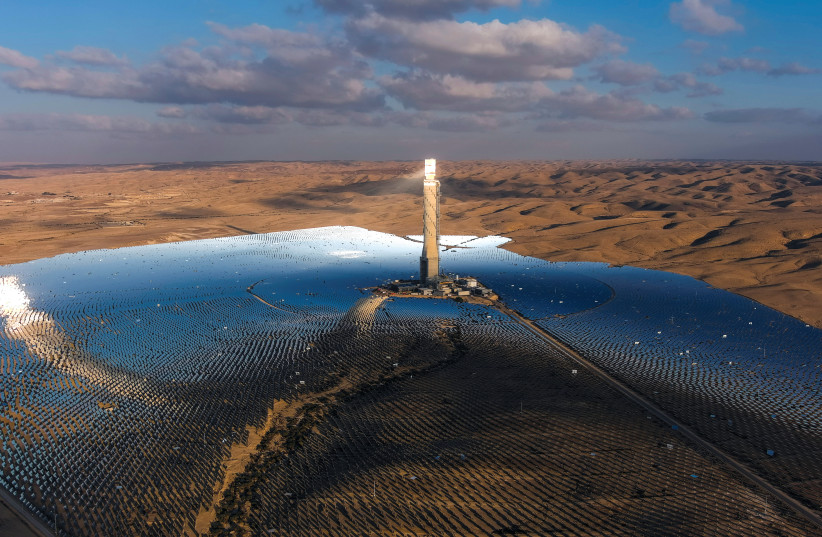This past week, the Environmental Protection Ministry announced that the government will invest NIS 15 million to establish a DeserTech International Center in Beersheba. The center aims to harness the experience and innovation of Israeli minds toward developing innovative technologies and solutions and transform the region into an entrepreneurial hub for climate technologies.
The announcement coincided, and not by chance, with the Glasgow UN Climate Summit, where the world’s leaders discussed practical solutions for dealing with the growing climate crisis, and the week marking the anniversary of the death of David Ben-Gurion, Israel’s first prime minister, whose vision of Negev development guides us to this day.
Beyond his mission of establishing a state for the Jewish people in Israel, Ben-Gurion maintained strong ties with scientists and researchers, understanding – decades before hi-tech became the leading economic engine and our trademark in the world – that the relations between Israel’s scientific community and its political system are pivotal to establishing Israel as a country of global impact.
In the early years of the state, Ben-Gurion understood the strategic competitive advantages that would promote the state and its economy. Today, more than ever, these advantages are integrated in his vision of developing the Negev as a region where academic institutions operate alongside innovation centers, to bring economic prosperity and growth.

Many years after his vision was set forth, it is clear – as this government resolution ratifies – that the Negev plays an important role as a hub for research, entrepreneurship and innovation around water scarcity, extreme temperatures, soil degradation and connecting remote and off-grid communities – issues that trouble many countries and international organizations, desperately needing the right technological solutions.
The Israeli DeserTech Innovation Community, established by the Merage Foundation, the Israel Innovation Institute, the Environmental Protection Ministry and Ben-Gurion University, was created to promote the development, adaptation and commercialization of technologies that enable sustainable living in arid climates, while simultaneously turning Beersheba and the Negev region into a global entrepreneurial hub for these technologies.
This community is undoubtedly an essential factor in propelling the economic capabilities of the region, capitalizing on the global potential of exporting solutions in this field. In fact, the DeserTech community has already launched several collaborative ventures with various countries, such as the United Arab Emirates, United Kingdom, Netherlands and more.
In Glasgow, the world leaders realized that this is the last chance to make a drastic shift from the direction we are headed to: a hotter and more dangerous future that will impact us all. As someone who is deeply involved in the Negev’s economic development, I call upon Israel’s decision-makers to continue making strategic decisions to benefit the development of the Negev and its technological ecosystem as an opportunity to impact the entire world – now, more than ever.
The writer is executive director of the Merage Foundation.
Merage Fund Israel is a philanthropic fund that promotes various programs to advance regional economic prosperity in the Negev.
